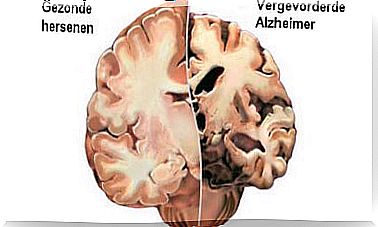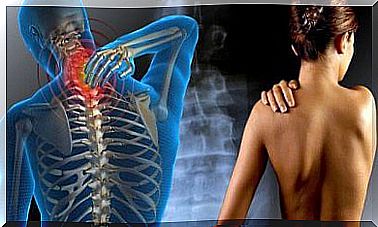Symptoms Of Thyroid Imbalance

In case you didn’t know, the thyroid plays a super important role for your bodily functions and metabolism. This is a butterfly-shaped gland located in your throat, just above your collarbone. When this is out of balance, you have to deal with an unbalanced thyroid.
When the thyroid is out of balance, this can cause a lot of problems. Find out in this article what the main symptoms of an imbalanced thyroid are.
Important, but often forgotten: the thyroid gland
Often people are not aware of the influence this gland has on their daily lives, until the moment that ‘problems arise’ suddenly. The thyroid produces much of the hormones that control your bodily activities.
The two most common thyroid disorders are:
- Hyperthyroidism: In this condition, the thyroid gland produces more hormones than the body needs.
- Hypothyroidism: In case your thyroid does not produce enough hormones.
Diseases related to the thyroid gland can include:
- Goiter: the thyroid gland is enlarged
- Thyroid Cancer
- Nodules on the thyroid gland
- Thyroiditis: Inflammation of the Thyroid gland
About 12% of today’s world population is likely to suffer from a thyroid related problem sooner or later and many people will suffer from a thyroid imbalance during their lifetime.
Signs of an Imbalanced Thyroid
Your body is constantly giving you directions, although you may not always be paying close attention. It’s important to watch for signs that could indicate an imbalanced thyroid.
Fatigue and Sleep Disorders
This is one of the main symptoms of a thyroid problem. If you find yourself constantly needing sleep, needing more than ten hours of rest or lack of strength and energy, you may be suffering from hypothyroidism.
If you have trouble falling asleep easily or if you suffer from anxiety, it may be because you have hyperthyroidism. In hyperthyroidism, the heart rate increases.

Weight changes
People who suffer from hypothyroidism often have trouble with weight loss. While people who suffer from hyperthyroidism experience difficulty with weight gain. No matter what they try, they just can’t seem to put on a few pounds.
mood swings
The mental and emotional state of mind often changes in people who suffer from an imbalanced thyroid gland. For example, hyperthyroidism is related to anxiety, panic attacks and concentration problems and people who suffer from this always go through their daily tasks like a spear.
In the case of hypothyroidism, there is often depression, sadness and fatigue. This is because serotonin levels in people who suffer from this condition are often lower than normal. Hypothyroidism can also cause a lack of concentration or forgetfulness.
Digestive Problems
People who suffer from hypothyroidism often have severe constipation problems (changes in hormone production can slow down the digestive process).
People who suffer from hyperthyroidism may actually suffer from diarrhea or irritable bowel syndrome.
Muscle and joint pain

If your muscles suddenly feel numb, you experience pain or notice that your hands and feet often fall asleep, it may be because the thyroid gland is not producing enough thyroid hormone. If this is the case, you may also suffer from:
- Stiffness
- Pain
- inflammation
- Weakness
- Tendonitis
If you experience difficulty holding objects still in your hands or have difficulty climbing stairs or otherwise reaching heights, these problems may be related to hyperthyroidism.
Changes in the reproductive system
When women suffer from hypothyroidism, their periods can be longer, heavier and more painful. Also, these women may suffer from infertility and hormonal imbalances (such as premenstrual syndrome). And both women and men with hypothyroidism often have decreased libido.
Women who suffer from hyperthyroidism usually have shorter and very light periods. And in this case too, these women can suffer from reduced fertility.
Hair and skin problems

If your hair is very dry and brittle or if your hair suddenly starts falling out, this could be due to a decreased production of the thyroid hormone. If your skin is dry and your nails are brittle, chances are you have hypothyroidism.
In the case of hyperthyroidism, you may suffer from hair loss and sensitive skin.
Changes in body temperature
People who regularly suffer from cold hands and feet or who have a body temperature below 36.5 may suffer from hypothyroidism.
If you are often very hot or sweat a lot during the winter, this may indicate hyperthyroidism.
Unusual Cholesterol Levels
In the case of hypothyroidism, LDL (bad cholesterol) and HDL (good cholesterol) levels are often very high, even when a person is on a diet. In contrast, people who suffer from hyperthyroidism have low cholesterol levels.
Altered blood pressure

Multiple studies show that people with hypothyroidism are more likely to develop high blood pressure. The opposite is true in hyperthyroidism, because the systolic pressure goes up and the diastolic pressure goes down.
Heartbeat
Hypothyroid patients have a lower than normal heart rate (about twenty beats per minute less than usual).
Hyperthyroid patients, on the other hand, may find that their heart is beating very quickly or suffer from palpitations.
Swelling in the neck
Goiter is a common problem with an unbalanced thyroid gland. When this gland inflates, it can cause swelling or a lump in the throat and cause hoarseness. Goiter can occur in both people with hypothyroidism and those with hyperthyroidism.
Are some people predisposed to thyroid problems?
There are many risk factors that can increase the chances of developing a thyroid imbalance:
- Family history of thyroid problems.
- Gender and age (thyroid problems are more common in women and people over 40).
- Tobacco consumption (cigarettes contain substances that can be harmful and toxic to the thyroid gland).









